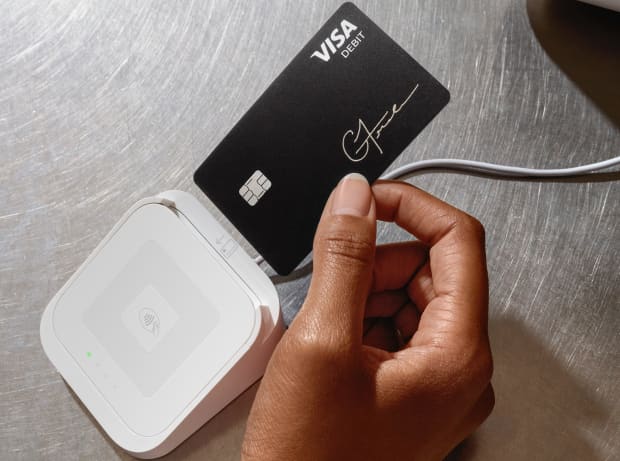This post was originally published on this site

Square’s Cash App offers peer-to-peer money-transfer services for free but makes money when users spend funds through an associated debit card.
Square
Square Inc. seems to be cooking in all aspects of its business, and that earned its stock an upgrade late Monday.
BTIG analyst Mark Palmer raised his rating on Square’s stock SQ, -7.06% to buy from neutral, writing that the company’s latest earnings report showed a perfect combination of continued momentum with the consumer-facing Cash App and an unexpectedly quick recovery for the merchant-focused Seller business.
Shares of Square were up 0.7% in after-hours trading Monday after dropping more than 7% in the regular session. While shares of other payments names including Visa Inc. V, +7.16% and Mastercard Inc. MA, +9.85% rocketed in Monday trading upon upbeat vaccine news from Pfizer Inc. PFE, +7.69% and BioNTech SE BNTX, +13.91%, those stocks hadn’t done much over the course of the pandemic, whereas Square’s had more than doubled.
BTIG’s Palmer wrote that he was “not overlooking” the potential for tough comparisons starting in the second half of 2021, “nor are we unaware of the perception that its valuation is stretched.” Still, he remains upbeat about Square’s ability to make inroads in its two main markets. The Seller business represents a $100 billion-plus market opportunity, he wrote, while the Cash App sits on a $60 billion-plus opportunity.
“We believe investors in grasping the extent to which the pandemic had been a game-changer with regard to the growth trajectory of Square’s Cash App should not overlook the extent of the progress made by its Cash App for Business product, which enables small businesses to accept payments from consumers using Cash App for which they pay the company a fee,” Palmer wrote. He notes that this business generated $2.9 billion in gross payment volume during the third quarter, up 322% from a year earlier and enough to account for 9% of Square’s consolidated gross payment volume.
In addition, Palmer said that Square “meaningfully broadened its potential user base” by allowing stock-trading on the Cash App and positioned itself to become “an even more widely accepted means of accelerating the receipt of government transfer payments” through its work in facilitating stimulus disbursements through the app.
Palmer had prior concerns about Square’s lending business, which he worried could make the company “increasingly dependent on the extension of credit to small- and medium-sized businesses as a means of driving sales in its core payments business.” He argued that Square may have changed its approach to credit extension during the initial months of the pandemic, as it paused the Square Capital unit’s new flex loan offering until he end of July.
Read: Visa and Mastercard have a lot in common, but COVID-19 puts one key difference in focus
“While Square management appeared to embrace lending as a new avenue for growth at a time when questions lingered about its growth trajectory, we believe the advent of Cash App as a potential ‘super app’ has negated the need for it to lean on Square Capital,” Palmer wrote. Financial technology apps in China like Alipay are sometimes referred to as “super-apps” because they combine many money-related services in one place.
Palmer set a $220 price target on Square’s stock, which has gained 194% so far this year as the S&P 500 SPX, +1.17% has risen 10%.

